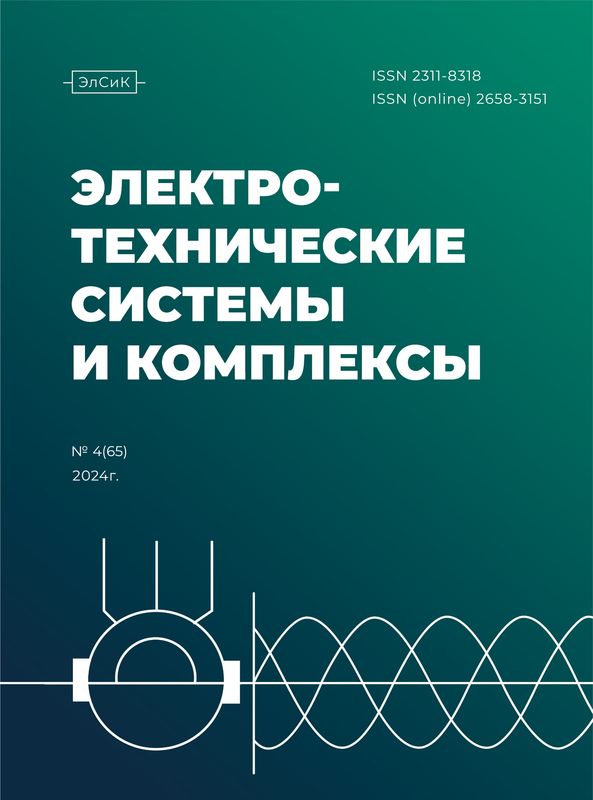The editor’s office of Electrotechnical Systems and Complexes is guided by the recommendations of the Committee on Publication Ethics (COPE), as well as by the regulations adopted by the 2nd World Conference on Research Integrity that took place in Singapore on 22-24 July 2010 (http://www.worldscientific.com/worldscibooks/10.1142/8102).
The editor’s office of Electrotechnical Systems and Complexes guarantees its compliance with the following:
- Scientific publication authorship ethics;
- Scientific publication review ethics;
- Scientific publication editor ethics;
- Publication ethics.
Key Terminology:
Publication ethics is a set of rules of conduct designed to guide authors, reviewers, editors, publishers and readers in their interactions over creating, distributing and making use of scientific publications.
Editor is a member of a scientific journal or an editorial office responsible for preparing the publication materials while keeping in contact with authors and readers of scientific publications.
Author is a person or a group of people (a group of authors) engaged in creating a scientific publication.
Reviewer is an expert acting on behalf of a scientific journal or an editorial office who evaluates an author’s work to determine if it can be accepted for publishing.
Publisher is a legal entity or an individual who issues scientific publications.
Reader is any person who has read the publication.
Plagiarism is the practice of taking someone else's work or ideas and passing them off as one's own. Plagiarism may be a violation of copyright or patent laws and as such may entail legal consequences.
Conflict of interest means potential, or recognized, and real situations causing conflicting or competing interests that may influence the editor’s decisions.
General Obligations and Liability of the Editor’s Office
The editor’s office is responsible for all the publications of Electrotechnical Systems and Complexes. It means that the editor’s office shall:
- Strive to satisfy the needs of the readers and the authors;
- Strive to constantly improve their journal;
- Strive to ensure the quality of the published materials;
- Protect the freedom of opinions;
- Abide by the research integrity principles;
- Not allow the commercial interest to compromise the intellectual or ethical standards;
- Be always prepared to publish corrections, explanations, denials (or retractions) or apologies when necessary.
Relations with the Readers
The editor’s office shall inform the readers about the source of funding for research works and if the sponsors were involved in any way in the research activities or the publication of the findings, and if yes, what their role was.
Relations with the Authors
- The editors’ say on accepting or rejecting the article shall be dictated by the article’s worth, originality, clarity of presentation, reliability of the data contained therein and the article’s relevance to the Journal’s specialisation;
- The editors shall not reverse their decisions on publishing an article unless major issues arise with regard to such publication;
- New editors shall not reverse the previous editors’ decisions on publishing an article unless major issues arise with regard to such publication;
- The review procedure is described in the Author Guidelines section, and the editors shall be prepared to substantiate any significant deviation from the mentioned procedure;
- The editor’s office ensures the full scope of the author guidelines is available and kept up-to-date at the Journal official website.
Relations with the Reviewers
- The editor’s office shall ensure an adequate selection of reviewers, i.e. individuals who are capable to give an educated opinion on the article and who do not have any conflict of interest related to it;
- The editors shall ensure an honest, impartial and timely review work with regard to the articles submitted;
- The editors and the other personnel have been fully informed about the confidentiality of the manuscripts submitted for review and shall only disclose them to those personnel who are involved in evaluating, reviewing, and publishing;
- The editor’s office will request the reviewer to disclose any possible conflict of interest before the reviewer is allowed to do reviews;
- The reviewer shall provide an impartial review, express his/her views clearly while supporting them with arguments and links, when necessary. The reviewer shall not make humiliating or disparaging statements about the author;
- The editor’s office follows the double “blind” review principle ensuring the reviewers’ anonymity.
Actions in Case of Suspected Misconduct
- In case of suspected misconduct (plagiarism, duplicating, misrepresentation of results, authorship dispute), the editor’s office shall ask the authors involved to explain the matter. Should the feedback appear to be unsatisfactory, the editor’s office shall contact the authors’ employers or the relevant agency (possibly, the regulating body) and request an investigation.
- When dealing with cases of misconduct on the authors’ or reviewers’ part, the editor’s office shall be guided by the COPE guidelines.
Ensuring Research Integrity of Publications
- Errors or controversial statements shall be addressed by the editor’s office as soon as practicable and the wider public shall be informed about any such errors or controversial statements.
- When retracting articles, the editor’s office shall be guided by the COPE guidelines.










